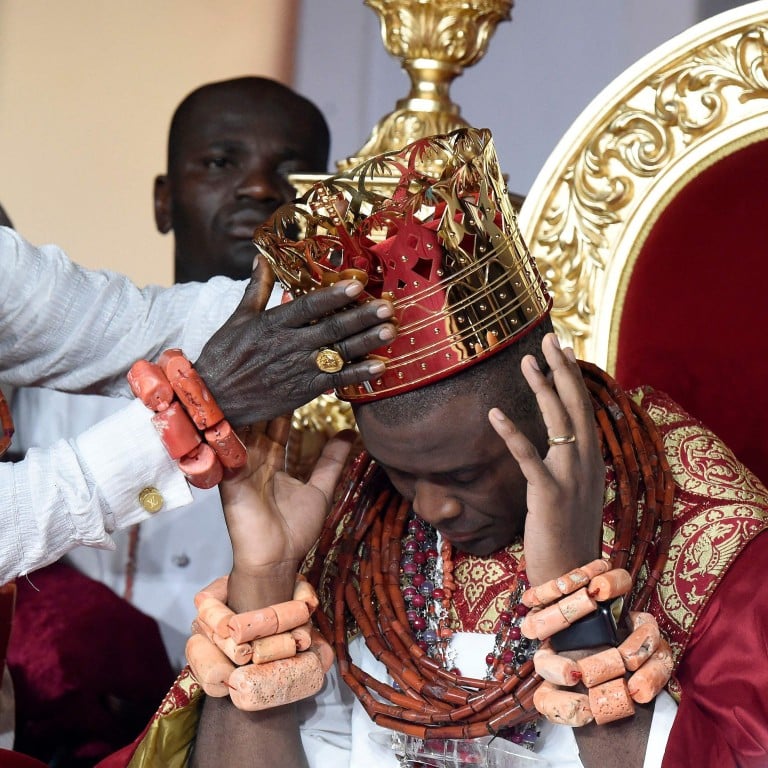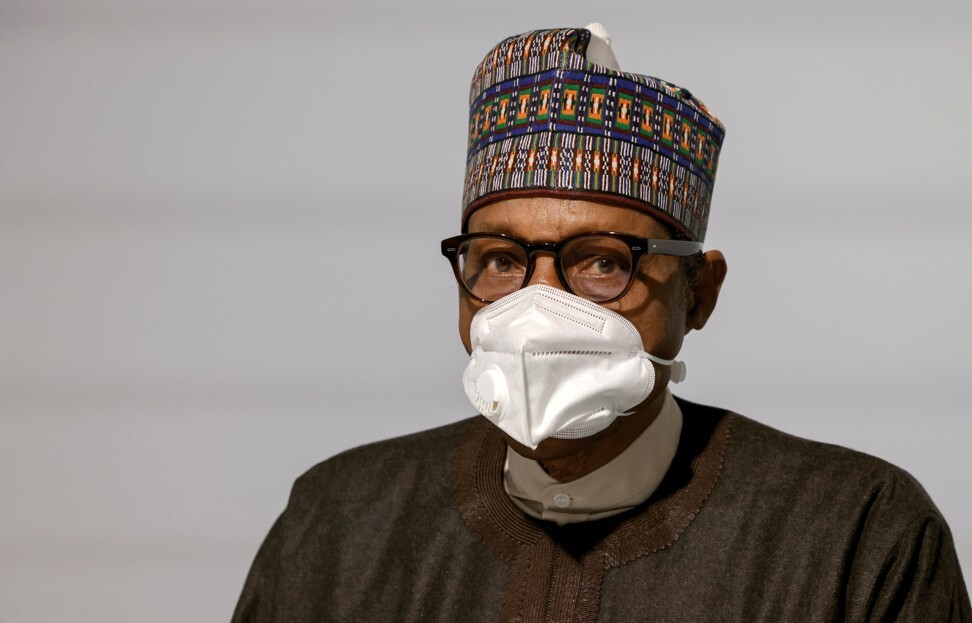
Thousands attend coronation of new king in Nigeria’s oil hub Warri
- The king, or olu, of Warri is one of the most important traditional rulers in Nigeria, reigning over a kingdom dating back to the 15th century
- The new king, Omo Oba Utienyinoritsetsola Emiko, 37, ascended the throne as the 21st olu of Warri at the ceremony in Ode-Itsekiri, his people’s ancestral home
Thousands of people in traditional red and white attire thronged to the riverine community of Ode-Itsekiri in southern Nigeria’s oil hub Warri on Saturday to witness the ascension of their new king.
The king or Olu of Warri is one of the most important traditional rulers in Nigeria, reigning over a kingdom dating back to the 15th century with a trading hub and seaport once used by Portuguese and Dutch slave merchants.
Nigeria’s kings and emirs hold no official political powers, but they wield enormous influence as custodians of spiritual and cultural heritage in Africa’s most populous nation which has more than 300 ethnicities.
The new king, Omo Oba Utienyinoritsetsola Emiko, 37, ascended the throne as the 21st Olu of Warri at the ceremony in Ode-Itsekiri, his people’s ancestral home.
The US-educated prince was crowned by traditional chiefs of the ancient town in the presence of ministers, governors, senators, religious leaders and diplomats.
After the crown was placed on his head, the kingmakers bowed to pay homage to the new king to applause from the ecstatic crowd of onlookers.
The new king, now officially known as Ogiame Atuwatshe III of Warri kingdom, urged Itsekiri to support him, as guests were treated to displays of music, dancing, acrobatics and a boat regatta.
“We strongly believe the reign of King Emiko will usher in peace, progress and development in Warri kingdom,” retired civil servant Felix Agbeyegbe, told Agence France-Presse, wearing a black hat with white and red clothing.
The 77-year-old, who has witnessed the ascension of three Olu of Warri, described the new king as “a child of destiny who should be supported to succeed”.
Emiko rose to the throne after the death of the former king, his uncle, but his ascension was not without controversy. Some traditional leaders disagreed because his mother is not from Itsekiri.
Rumours of a cancellation of his coronation also emerged after local media reports his traditional crown, the symbol of authority, was missing.
Two sons of the late king were reportedly invited for questioning by the police over the matter.
“The dispute has been resolved as the crown has been found,” a palace source told Agence France-Presse. “Prince Emiko will receive his crown.”
In a message, Nigerian President Muhammadu Buhari urged the new king to put the controversy surrounding his emergence behind him and to work for his people.
Streets and corners in Warri and its environs were adorned with festive banners and buildings, offices and markets were decorated with white and red, the symbol of the Itsekiri.
Security was heavy and police helicopters hovered over the town.
Warri businessman Jolomi Otiri, 32, hoped the king “with his pedigree, will attract more development to the town”.
But he urged the king “to unite all the sons and daughters of Warri irrespective of their religious and political affiliations and beliefs.”

.png?itok=arIb17P0)

